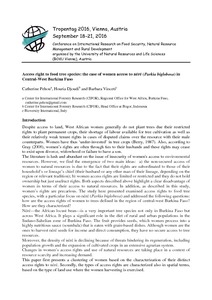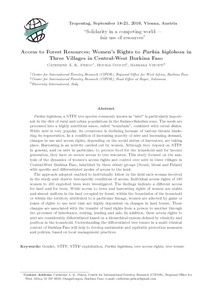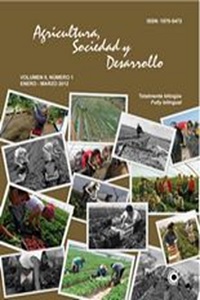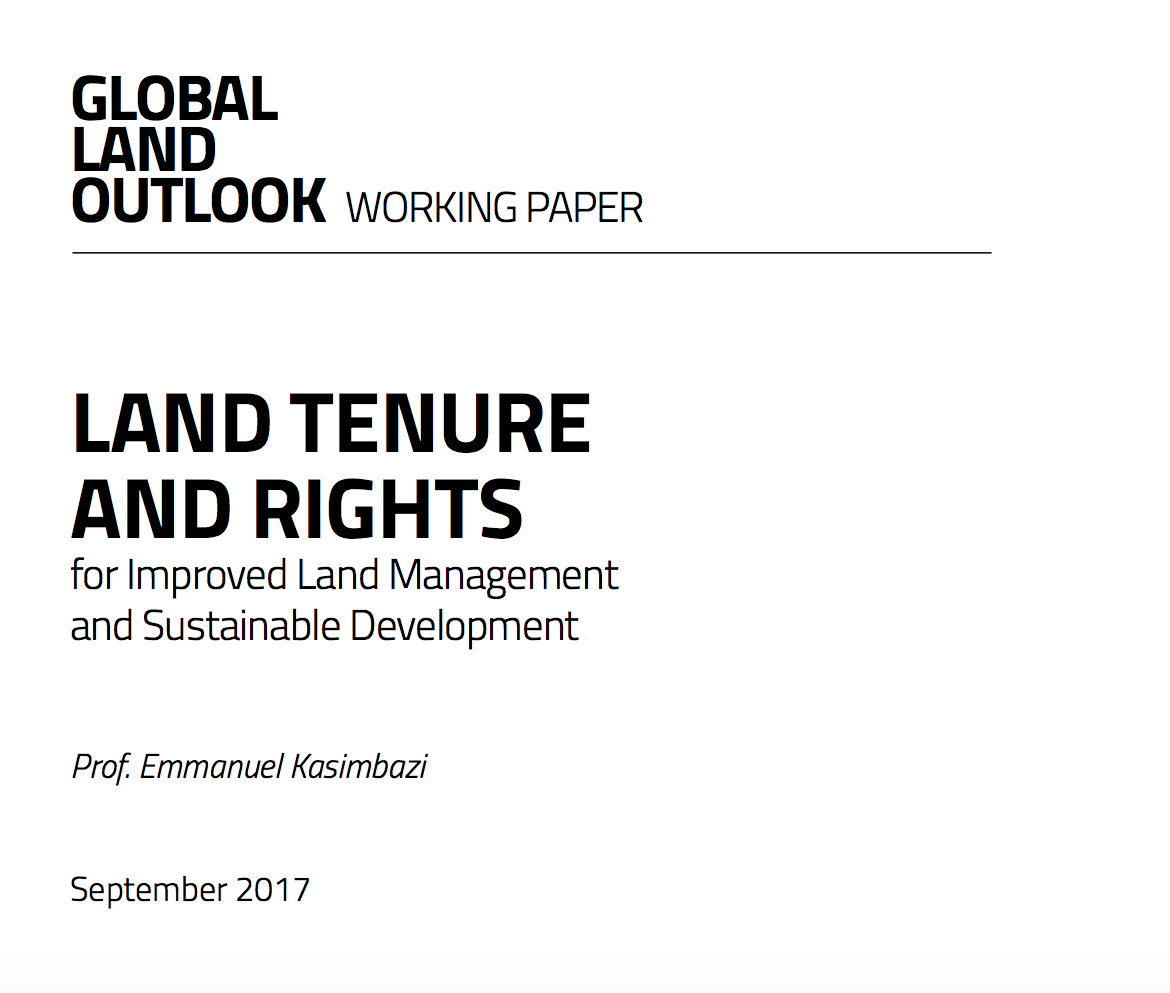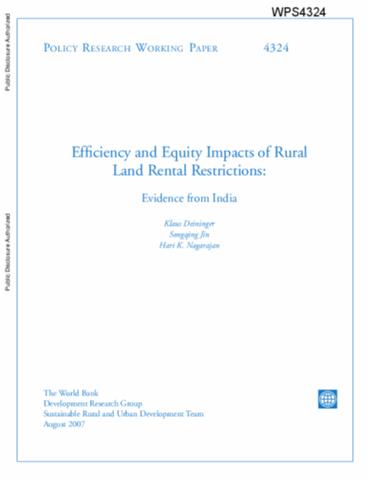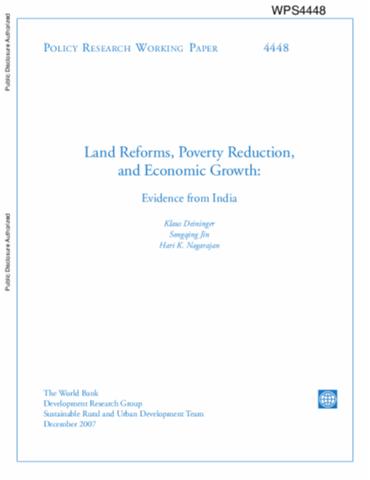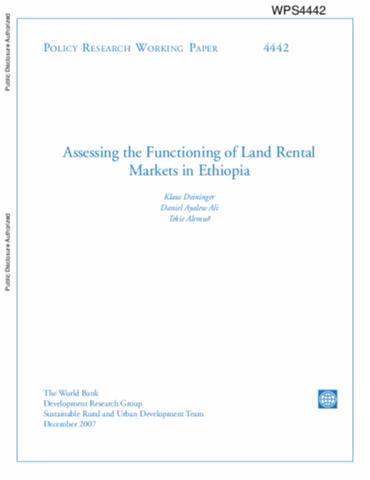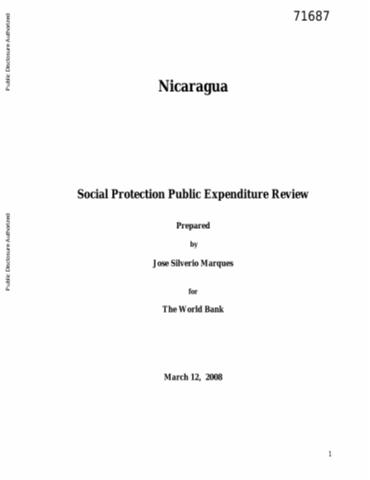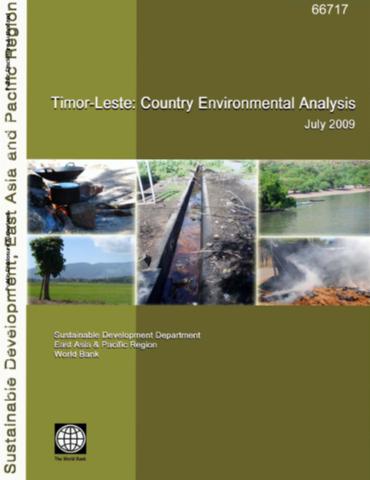Access right to food tree species: the case of women access to nere (Parkia biglobosa) in Central-West Burkina Faso
This paper first presents a clustering of women based on the characterization of their distinct access rights to néré. Secondly, the types of access rights are characterized also in spatial terms, based on the type of land use where the women harvesting is exercised.

